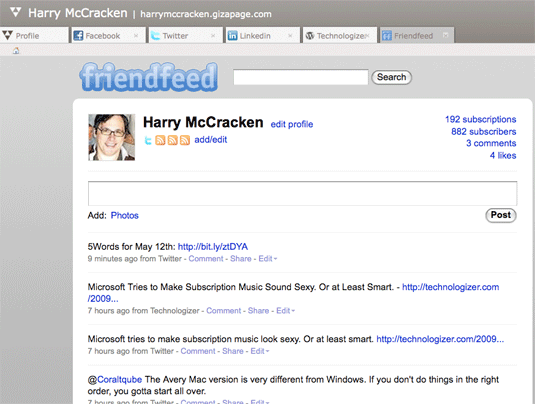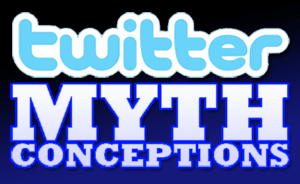 I think of TweetDeck as the SUV of Twitter clients–it’s really powerful, but also resource-hungry, and it takes up a lot of (screen) space. Squeezing it down to fit on an iPhone kind of sounded like putting Guernica on a postage stamp. But the iPhone version of the app, which arrived in the iTunes App Store late on Tuesday, retains the desktop version’s personality, and a surprising percentage of its power. It also seems to be unstable–or at least it’s stalled on me, and Twitter is rife with reports of other crashy behavior. I can’t give it an enthusiastic and unqualified thumbs up until until it seems to be running reliably for most folks, but I’m basically impressed with the approach the TweetDeck folks took in bringing their free application to the iPhone.
I think of TweetDeck as the SUV of Twitter clients–it’s really powerful, but also resource-hungry, and it takes up a lot of (screen) space. Squeezing it down to fit on an iPhone kind of sounded like putting Guernica on a postage stamp. But the iPhone version of the app, which arrived in the iTunes App Store late on Tuesday, retains the desktop version’s personality, and a surprising percentage of its power. It also seems to be unstable–or at least it’s stalled on me, and Twitter is rife with reports of other crashy behavior. I can’t give it an enthusiastic and unqualified thumbs up until until it seems to be running reliably for most folks, but I’m basically impressed with the approach the TweetDeck folks took in bringing their free application to the iPhone.
On the desktop, TweetDeck’s signature features are the way it lets you create groups of tweeters, and the columns that show incoming tweets, direct messages @mentions, search results, and more. They’re both there in the iPhone edition, and while you can only see one column at a time, it’s a cinch to slip-slide between all the ones you’ve created. The cool thing about group support is that a new version of the TweetDeck desktop client, also just released, enables seamless syncing of your groups among all your computers and your iPhone. (The new desktop client offers a bunch of other new features, including support for multiple accounts.) When I’m king, every desktop app will sync every setting between every copy you use–but for some reason almost none do it just yet. (One that comes to mind that does: Opera, with its Opera Link feature.) I confess to not using TweetDeck much on my Mac and Windows machines, but group syncing among multiple clients has me enthusiastic about giving it a try again.
The iPhone client sports most of the obligatory features you expect in an iPhone Twitter client: built-in URL shortening, GPS and maps, photos, and a bunch of ways to surf between tweets and tweeters and see what’s up. Like its desktop big brother, it also pops up little status messages notifying you about incoming tweets, @mentions, and direct messages. They appear only within TweetDeck itself–in theory, I guess the new iPhone 3.0 Notifications feature could be used to display them when you’re in other applications, but they’d probably drive you crazy pretty instantly. But if the day comes when Apple will let apps run in the background, TweetDeck would be an excellent candidate–it would feel even more like the desktop version if it could sit there and pull in tweets, letting you quickly check them whenever you have a spare moment.
iPhone users have an embarassment of Twitter riches to choose from: Tweetie, TwitterFon, Twitterific, Twinkle, and more. A TweetDeck that didn’t crash would be a formidable competitor, especially since it’s both free and ad-free. Let’s hope an update comes along shortly. After the jump, some images of this good-looking, potent piece of software.

 Facebook announced today that
Facebook announced today that  Variety reports that
Variety reports that  How many social networks do you belong to? I’ve signed up for so many that I’ve forgotten about some of them, and I don’t even try to alert my pals to all the places they can find me. So I’m intrigued by
How many social networks do you belong to? I’ve signed up for so many that I’ve forgotten about some of them, and I don’t even try to alert my pals to all the places they can find me. So I’m intrigued by 

 I had a good time writing
I had a good time writing